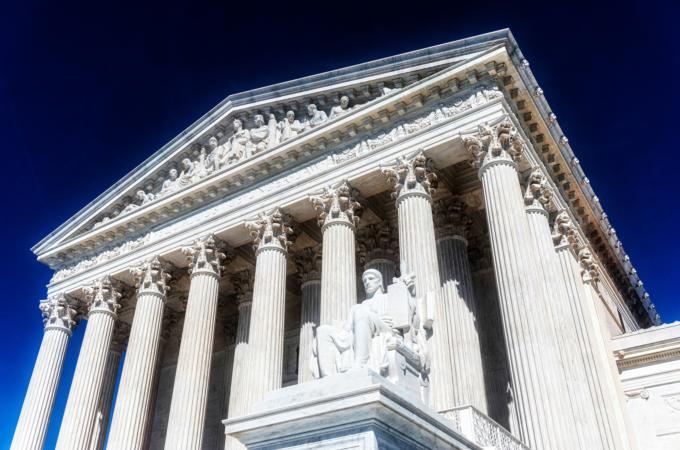After Trinity Lutheran
Will a preschool kids' playground turn out to be the path that leads to ending a historic form of discrimination against church-sponsored schools in America?
For the moment, the best answer to that question is: maybe. The question itself suddenly came alive in the wake of an important Supreme Court decision in June declaring that Missouri acted in a manner "odious to our Constitution" (the words are Chief Justice John Roberts') in refusing money from a playground safety fund to a Lutheran church's daycare and preschool only because of their link to the church.
The June 26 decision in Trinity Lutheran v. Comer was good news for religious interests. Potentially even better news was the Supreme Court's announcement the following day that it was returning four other cases to the state supreme courts in Colorado and New Mexico to be reconsidered in light of Trinity Lutheran.
The three Colorado cases focus on an attempt by a school district to establish a tuition scholarship program for students attending nonpublic schools, some of them religious. The state high court said no.
At issue in the New Mexico case is a textbook lending program for nonpublic schools, some religious. That also drew a no from the state supreme court.
In both states, the court decisions were based on sections of the state constitutions barring that bar giving state funds for any purpose to churches. More than 35 other states have such provisions, collectively known as Blaine Amendments.
The name is that of James G. Blaine, a 19th century Speaker of the U.S. House of Representatives, who in 1875 proposed similarly amending the federal Constitution. His amendment failed, but similar amendments spread among the states in an era of widespread hostility to Catholic parochial schools.
Whatever the Colorado and New Mexico courts do now -- and despite the remand, they could still reject the aid in question under their states' Blaine Amendments -- these cases almost certainly will be back before the Supreme Court in a year or two.
And it's far from certain what the Supreme Court will do then. The court lined up 7-2 in Trinity Lutheran, with only Justices Sotomayor and Ginsburg voting against giving public funds to the church for its playground upgrade.
Perhaps significantly, however, Justice Robert went out of his way to add a footnote to his opinion stressing that it applied only to state funding for this obviously narrow purpose. Only two justices -- Thomas and Gorsuch -- took exception to that, arguing that the principles underlying the decision, in Gorsuch's words, "do not permit discrimination against religious exercise--on the playground or anywhere else."
In practice, what this means is that if the same nine justices were asked to consider broader forms of assistance, such as the school vouchers and textbooks involved in Colorado and New Mexico, the result could well be a 4-4 split, with the tie-breaking ninth vote resting, as in recent years it so often has, in the hands of Justice Anthony Kennedy.
But will the same nine justices be on the court in a couple of years? Or will, say, two have stepped down and been replaced by two new members? Then the result is anybody's guess.
As the history of the Blaine Amendments shows, denying public assistance to church schools is a blot on the nation's record with historical roots in 19th century anti-Catholic bigotry. Decisive corrective action is long overdue. If the path to that result lies through a school playground, so much the better. It's high time.
- Russell Shaw is the author of more than twenty books. He is a consultor of the Pontifical Council for Social Communications and served as communications director for the U.S. Bishops.



















